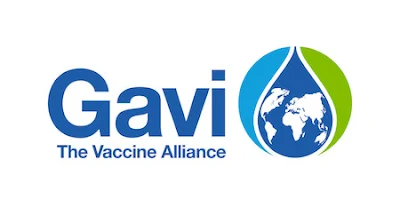NaijaAgroNet: ... Linking agrobiz, sustainable environs, people & technology
The Democratic Republic of Congo (DRC) has crossed the 10 per cent primary series COVID-19 vaccine coverage milestone, a significant achievement in a populous country where coverage one year ago stood at below 1%, and where the health system is handling multiple priorities including Ebola, cholera and measles.In January 2022, DRC was one of the 34 COVAX AMC-supported countries whose coverage stood below 10%. Today, with concerted support from Gavi, the Vaccine Alliance, UNICEF and WHO through the COVID-19 Vaccine Delivery Partnership, only 6 countries remain below 10% - with Cameroon, Mali and Gabon amongst the latest to cross this milestone.
Search NaijaAgroNet
Showing posts with label 10 per cent. Show all posts
Showing posts with label 10 per cent. Show all posts
Wednesday, March 15, 2023
Friday, October 11, 2013
Allocate 10% of budget to agric research- CASON
The Coordinator, Agribusiness and Youths
Empowerment of Community of Agricultural Stakeholders of Nigeria (CASON), Mr
Sotonye Anga has called on the Federal Government to devote 10 per cent of the
national budget to boost the capacity of research institutes towards the development
of the agriculture sector, NaijaAgroNet
reports.
Anga gave the charge at the presentation of his
paper titled “New Path to Wealth: Micro and Small Scale Food Processing in
Africa,” at the 29th Omolayole management lecture series in Lagos and stressed
that government need to spend money in the sector in order to allow it add
value to the lives of the people.
“I am worried how far our agriculture can go with budget
allocation of less than three per cent of national budget allotted to
agriculture. Let me state clearly that it will not be out of place to give at
least 10 percent of our national budget beginning with 2014 to agriculture and
maintain this trend for the next 10 years. This is the way to go if we are
serious about accelerating development in the sector,” he said.
He called for more efforts to ensure that lending
to the agricultural sector is on a single digit interest rate and said that “you
will kill our farmers when you lend to them at 26 percent per annum.”
NaijaAgroNet
... Linking agrobiz, people & technology
pix:President Goodluck Jonathan
Tuesday, July 23, 2013
10% public investments in agriculture still low – CAADP official
The
Comprehensive Africa Agriculture Development Programme (CAADP) has
said that the current public investments of 10 per cent in agriculture, across Africa’s
national budgets remain small.
This is coming as agriculture is reportedly back on the
political-policy agenda across the continent, although the 10 per cent budget
allocation to agriculture remains inadequate.
NaijaAgroNet
recalls that CAADP's goal is to eliminate hunger and reduce poverty through
agriculture and as a way of achieving this goal, African governments agreed to
increase public investment in agriculture by a minimum of 10 per cent of their
national budgets and to raise agricultural productivity by at least 6 per cent
by the year 2015.
Speaking,
however, in Addis Ababa recently, the Head, NEPAD Mr. Martin Bwalya,
told a high-level session of African leaders and International partners, that
the 10 per cent national budget allocation to agriculture is still very low,
despite “Agriculture is back to the political-policy agenda.”
Also,
he said, that as ways of aadvancing CAADP implementation strategies in
the last 10 years there are some key results that have impacted on the
initiative, namely that 43 out
of 54 countries are actively engaged in the process.
Additionally, he
said that 28 investment plans have been developed so far with 27 business meetings
held while 31 countries seemed compacted to the scheme.
Proffering further sustainable
modules, he said that spotlights
on the social protection integral to a growth and development agenda are no
longer negotiable, just as cconsistent and coherent African vision, agenda and positions could serve
as a boost to democratic
governments and improved public finances-revenue, thereby seeing to improved planning
for CAADP.
Urbanization across Africa is
expected to grow to 50 per cent by 2013, while youthful population, that is 40
per cent for ages under 23 years, even as globalisation based on food and energy prices as well as climate change
must be tackled to make a difference.
Further, he
pointed out that growing political commitment to increased budgetary
allocations was another boost for CAADP initiative, emphasising that regional integration and
coordination based on evidence-based and peer-reviewed agricultural
plans and programmes would go a long way in checkmating the food insecurity in
Africa.
“Poverty, hunger and malnutrition are one of the most
critical factors pulling down Africa socio-economic growth and development,” he
observed.
Remmy Nweke
... Linking agrobiz, people & technology
Labels:
10 per cent,
Agriculture,
CAADP),
Comprehensive Africa Agriculture Development Programme,
public investments
Subscribe to:
Comments (Atom)



.jpg)
